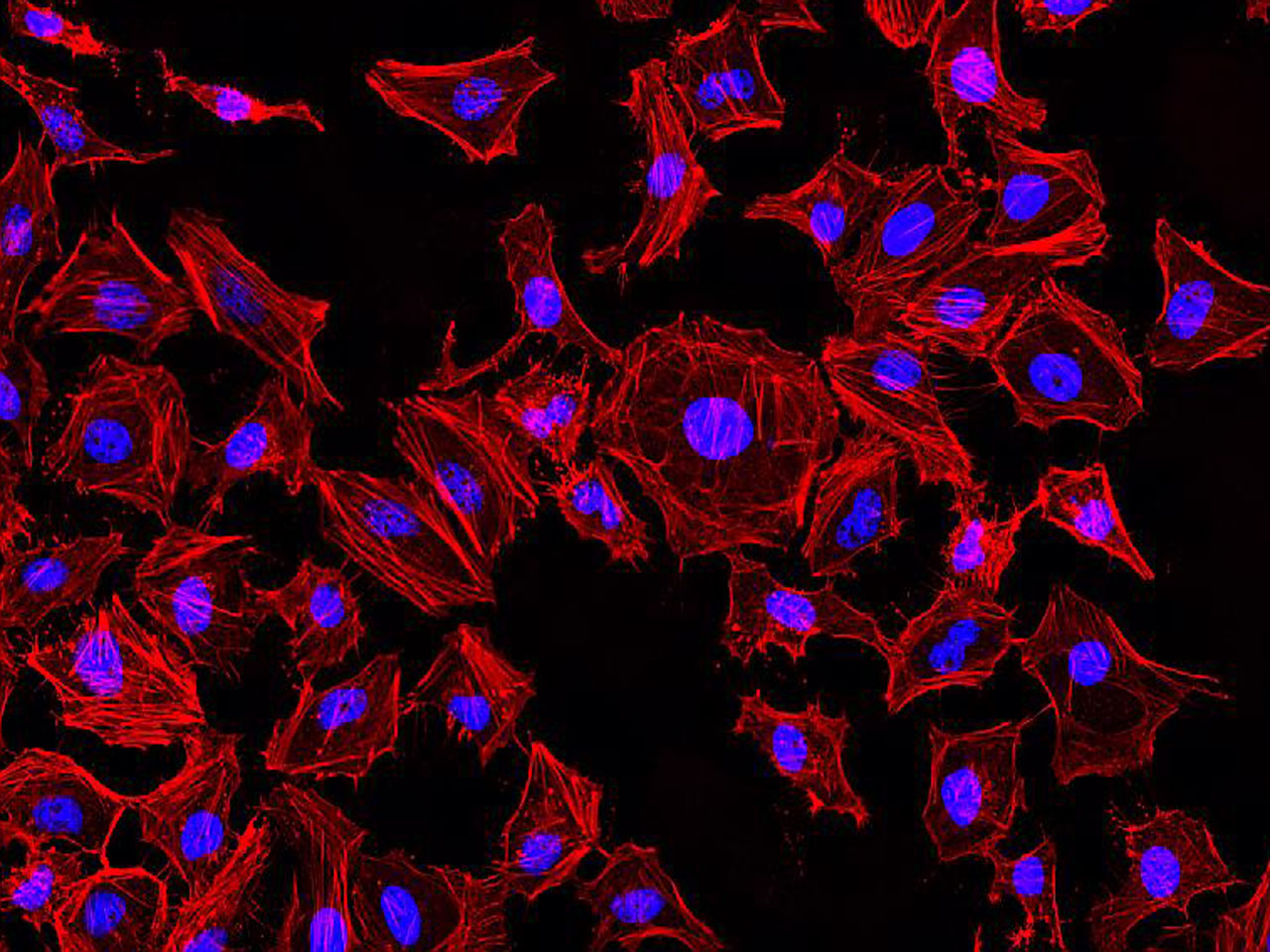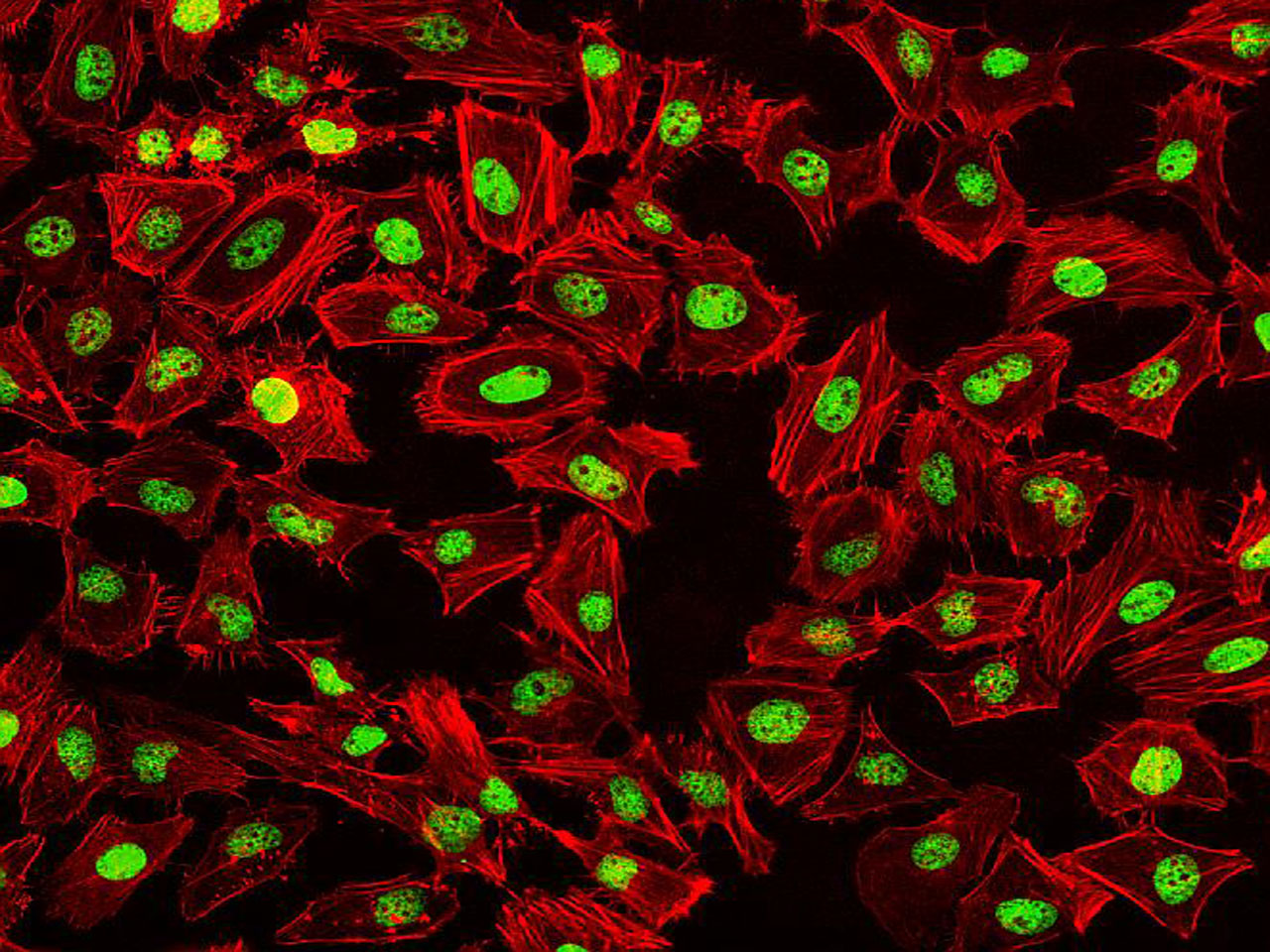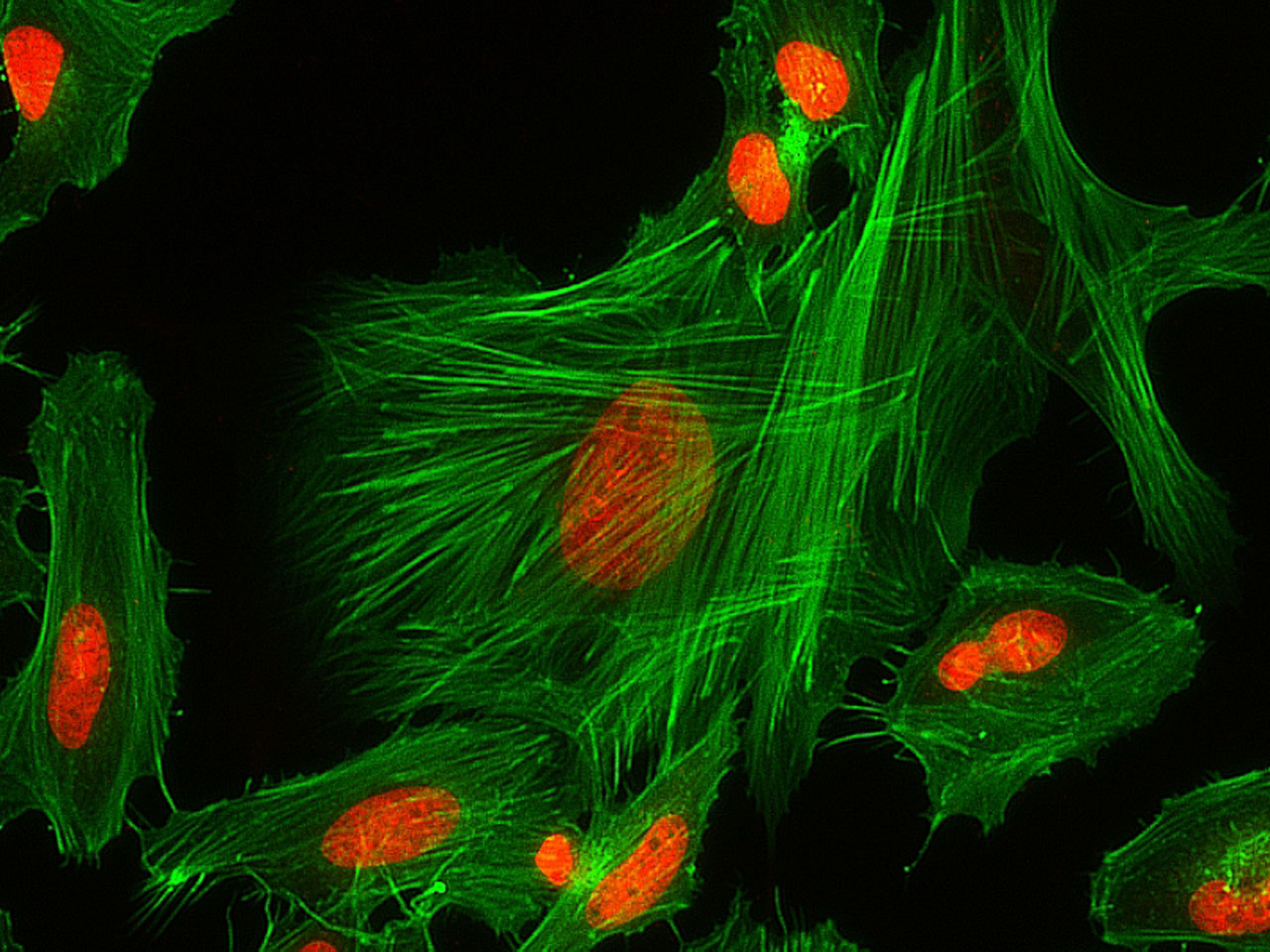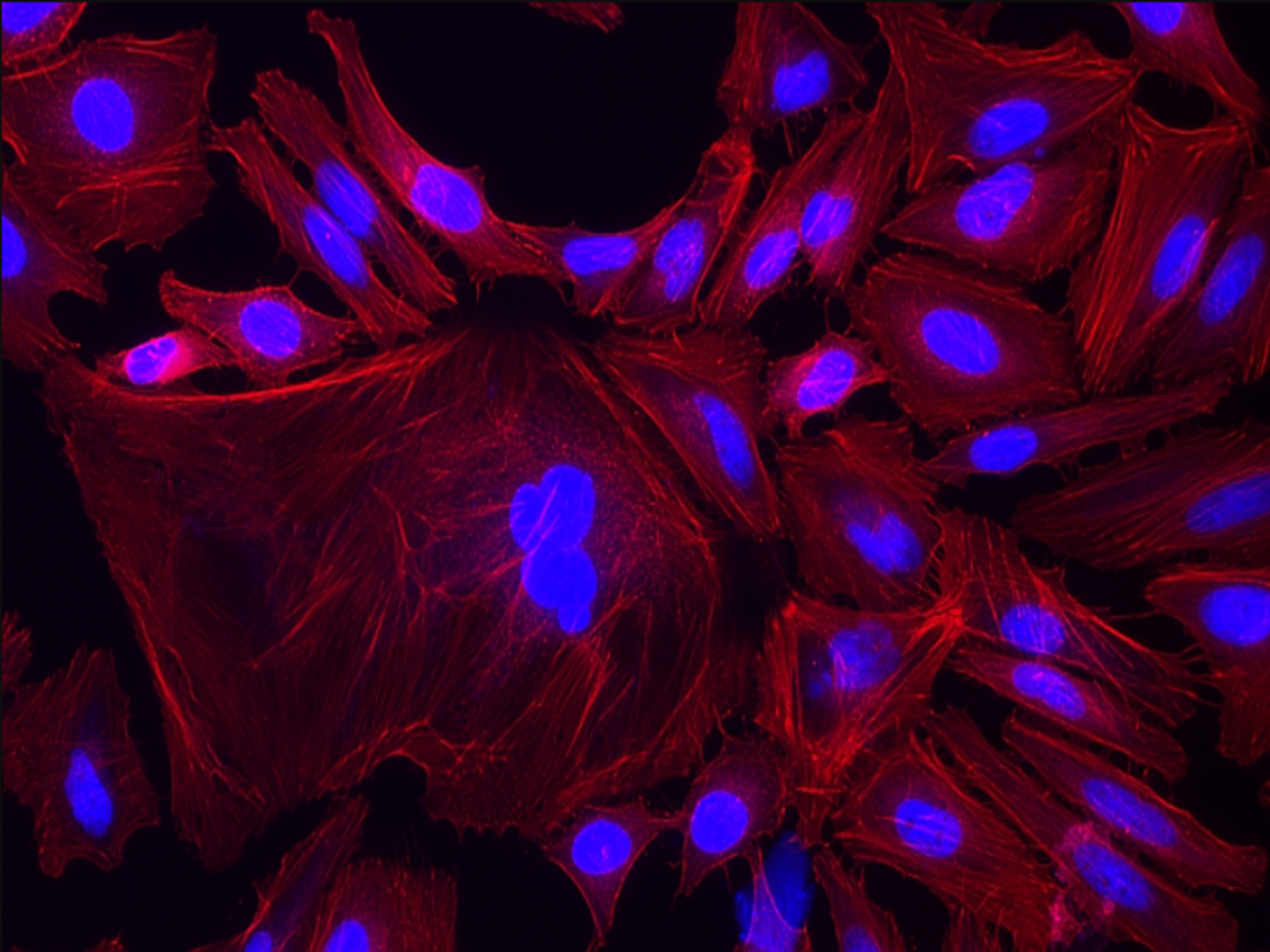Basic Information
Product name | Fluorescein 555-Phalloidin |
Sizes | 50T/300T |
Storage | -20℃, keep away from light |
Shipping | Shipped with ice pack |
Validity | 12 months |
Ex/Em: 555/565nm
Molecular Structure
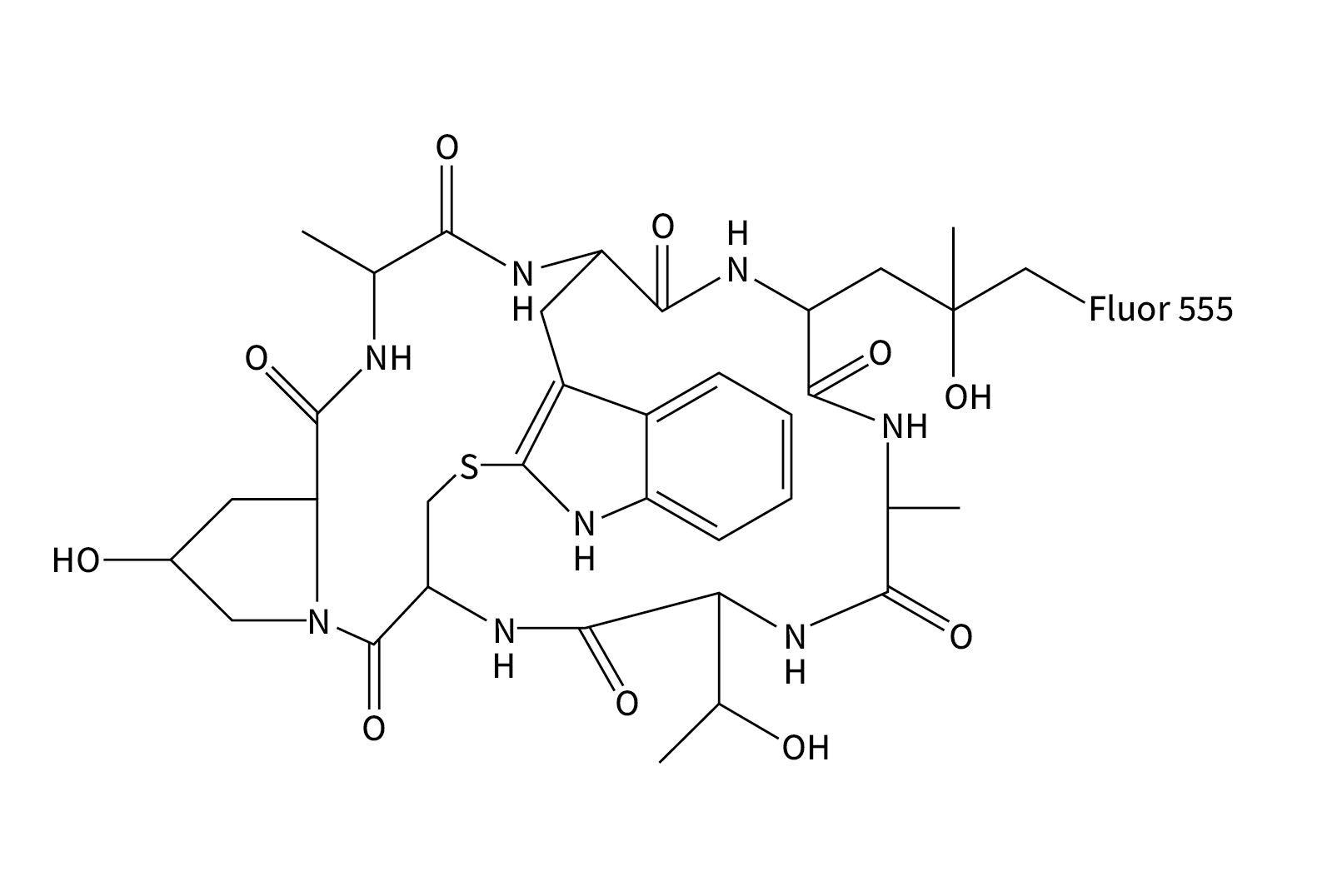
Product Introduction
Phalloidin is a cyclic heptapeptide toxin derived from the death cap mushroom (Amanita phalloides). It selectively binds to filamentous actin (F-actin) with high affinity (Kd = 20 nM) and does not bind to globular actin (G-actin). Phalloidin is commonly used to label F-actin in tissue sections, cell cultures, or cell-free systems, allowing for qualitative and quantitative analysis of F-actin.Phalloidin derivatives also bind to both thick and thin filaments with similar affinity, regardless of whether they are from animal or plant muscle cells or non-muscle cells. The binding ratio is approximately one phalloidin molecule per actin subunit. Non-specific binding is negligible, and the contrast between stained and unstained regions is very distinct. Therefore, phalloidin derivatives are particularly suitable for replacing actin antibodies in related research.Additionally, phalloidin derivatives are very small, with a diameter of about 12–15 Å and a molecular weight of less than 2000 Daltons. Many physiological properties of actin are maintained when it is not labeled. For example, interactions with actin-binding proteins such as myosin, tropomyosin, and DNase I are still possible. Phalloidin-labeled filaments can still penetrate solid-phase myosin matrices, and glycerol-extracted muscle fibers can still contract after labeling.
Reagent Preparation
Fluorescein 555-Phalloidin: Dissolve the lyophilized powder in the tube with an appropriate amount of sterile water to prepare a 200T/mL stock solution (add 1.5mL of sterile water for 300T dye and 0.25 mL of sterile water for 50T dye).
One unit (T) of Fluorescein 555-Phalloidin is defined as the amount of dye needed to stain one slide loaded with cells. The recommended dilution ratio for Fluorescein 555-Phalloidin is 1:40-1:200, with one unit equal to 1-5 μL of 200T/mL stock solution add to 200μL of total chromosome volume.
Note
1. All fluorescent dyes have quenching problems. Please try to avoid light to slow down fluorescence quenching.
2. To avoid repeated freezing and thawing, this product can be repacked into small quantities.
3. This product is For Research Use Only, Not for Diagnostic Use.



